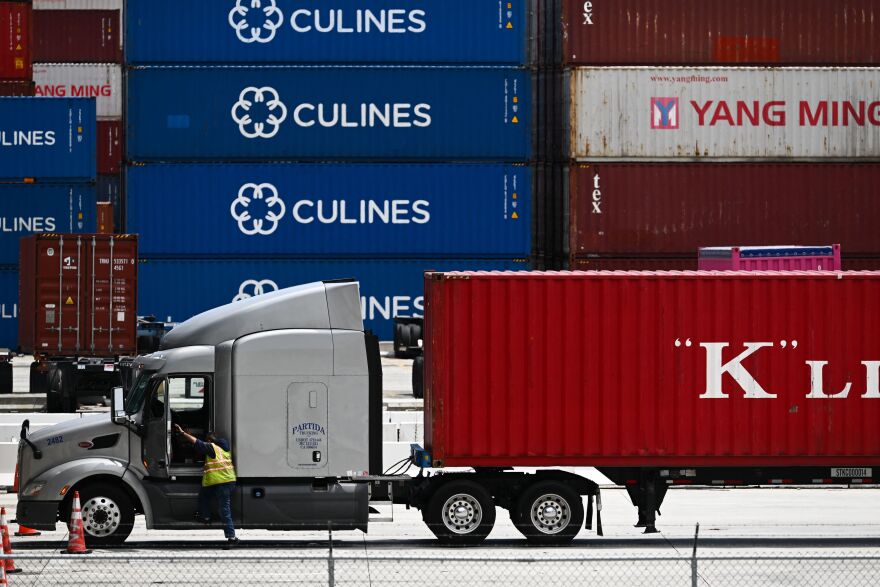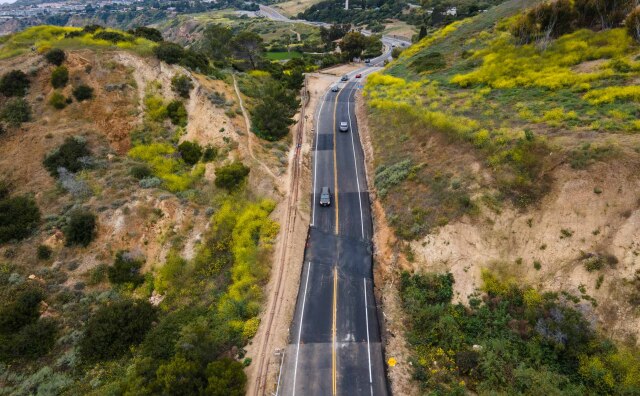Topline:
A rash of highway fires sparked by accidents involving trucks carrying or powered by lithium batteries — including an incident last week that shut down portions of the Port of Los Angeles for days — have put safety concerns around the critical technology back in the political spotlight.
Why it matters: Lithium batteries are central to California’s efforts to shift the transportation sector and energy grid away from fossil fuels. But the batteries can fail when overheated, pierced or crushed, igniting fires that are incredibly difficult to extinguish because lithium produces oxygen when it burns, further feeding the flames, and releases toxic fumes when doused with water.
The Republican viewpoint: California Republicans, who have long opposed zero-emission vehicle mandates, say the three highway blazes since July that caused prolonged road closures in San Pedro, the Inland Empire and near Tahoe are vivid examples of the state’s lack of preparation for a world run on batteries. Assemblymember Tom Lackey, who represents the part of 15 Freeway that shut down in July after a truck hauling batteries crashed, spearheaded a letter asking EPA to reject California's Advanced Clean Fleets rule, which aims to phase out the sale of new diesel trucks by 2036.
The Democratic viewpoint: Democrats say the risks of slowing down progress on fighting climate change are too high to abandon lithium. But lawmakers like Los Angeles City Councilmember Tim McOsker and Nevada Rep. Dina Titus are pushing new bills and motions to tighten regulations on how the batteries are transported.
Politics of safety: McOsker’s motion, which he hopes will be voted on in November, would require trucks leaving the port to undergo inspections to make sure they’re mechanically sound and their cargo secured. He said those rules would benefit drivers carrying a wide range of hazardous materials, including lithium batteries. While lithium fires are rare, he said he worries about the optics of safety.
For more, read the full story in POLITICO’s California Climate newsletter.
This story is published in partnership with POLITICO.







